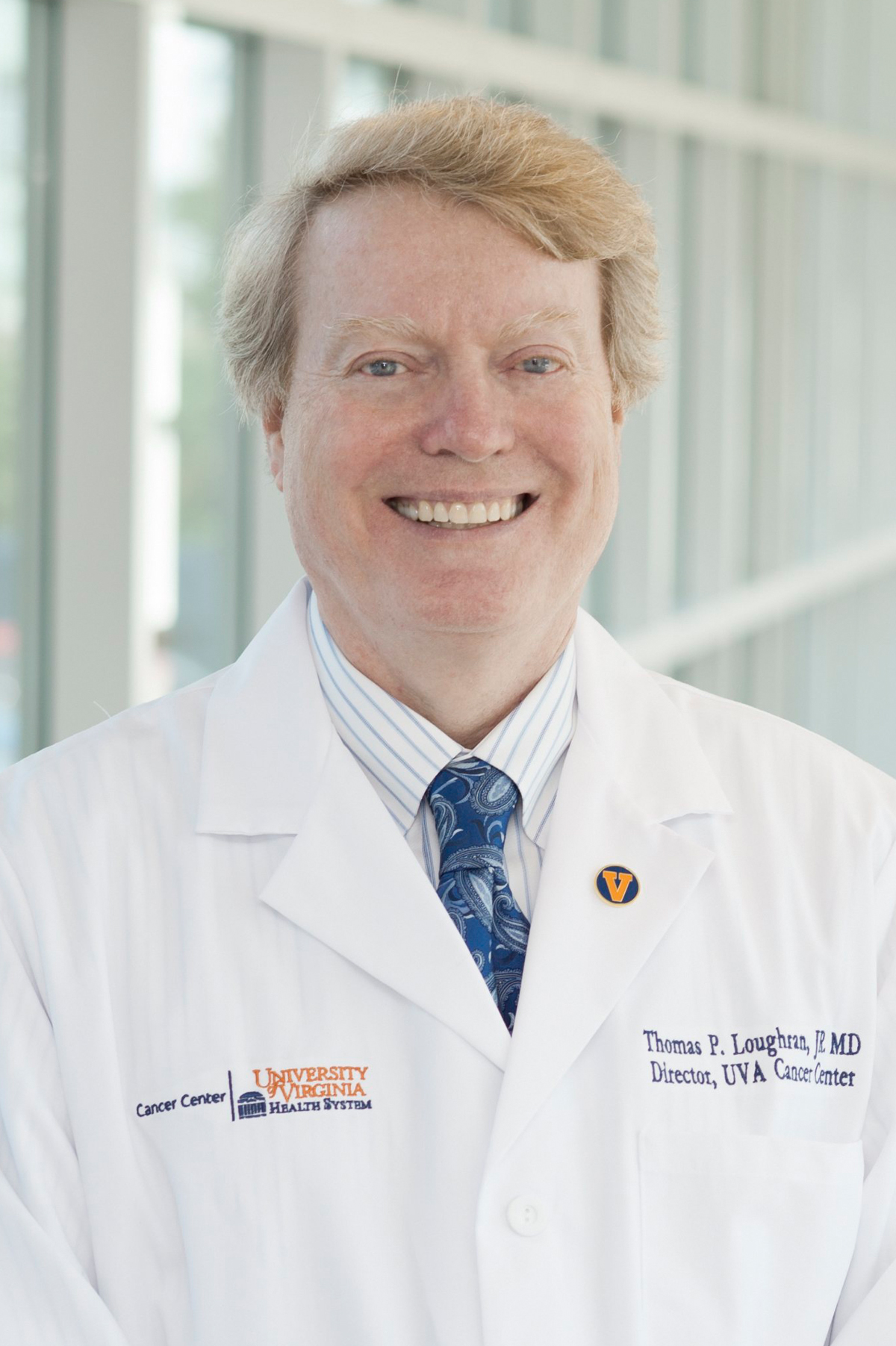
Director, UVA Cancer Center
Steering UVA Cancer Center’s long-term effort to upgrade its National Cancer Institute designation to one of Comprehensive Cancer Center is new leader Thomas P. Loughran Jr., MD. Loughran became the new Director of UVA Cancer Center this August, after a decade at Penn State Hershey Cancer Institute, where he was the founding director.
Loughran previously served as program leader of hematologic malignancies at the H. Lee Moffitt Cancer Center and Research Institute at the University of South Florida, associate director of the Bone Marrow Transplant Program at SUNY Health Science Center, and chief of hematology at the Syracuse Veteran’s Affairs Medical Center in Syracuse, N.Y. He completed his fellowship in medical oncology at the Fred Hutchinson Cancer Research Center under the direction of Nobel Laureate E.D. Thomas, MD, and remained on faculty there for seven years.
What attracted you to UVA Cancer Center?
The UVA Cancer Center has been NCI-designated for many years – one of just 65 or so designated centers in the country. So there is a foundation of strength already in place, and I welcome the opportunity to take it to the next level, to fully integrate clinical and research operations.
What are your first priorities as UVA works toward a Comprehensive Cancer Center designation?
This is really a long-term goal, and it’s going to take a lot of work. One basic necessity is to prove that we are taking maximum advantage of our major university’s resources to improve the health of the community. We will work on building a population research program, which will have to be strong to achieve comprehensive designation, as well as increasing the translational impact of our other already exceptional basic science programs.
On the clinical side, the key will be to integrate clinical and scientific efforts. Our goal is to make sure patients have access to state-of-the-art care, but also to advance cancer care for the nation by developing new treatments.
Do you feel the way we treat cancer is changing?
The sequencing of the human genome 12 to 13 years ago provided a vast amount of data pertinent for oncology, but for other diseases as well. Within each cancer cell, there are 20,000 genes interconnected, and now we can create a map showing how these genes interact together to give rise to cancer. The key is to identify that single protein to turn on the cancer cell network. If we can identify that target protein, then we can develop treatment to turn it off, so the network would collapse and the cancer would die.
The vision is that a patient could give a blood sample, the lab would create a genome profile to identify the target, tumor makeup and the genetics of the person so we can pick the single most effective drug that will have the least side effects.
At UVA, the Health System and University will work to incorporate this vision into practice. It will require a lot of coordination and a lot of people, but it can be done.
You have had great success as a clinician and researcher. Will you continue to wear those hats at UVA?
I will continue the same clinical efforts that I had at Penn State, seeing patients on Tuesdays. My research efforts are all very synergistic with my clinical operations. I discovered LGL leukemia when I was a fellow in Seattle. Patients come from all over the world to see me. Part of my research effort is to figure out the biology underlying this disease, and that effort is well supported with grant funding from the NCI and the Leukemia/Lymphoma Society. Another major project is a $10 million grant from the NCI looking at the development of new treatments for acute myeloid leukemia (AML).
Why should patients be referred to UVA for cancer care?
When patients go to a leading referral center like UVA, they get access to major resources. We have depth in terms of experience and specialties, as well as convenience. Patients can see all of the doctors they need to see in one visit. If a patient requires standard treatment – chemo, radiation – and lives far from UVA, we will send the patient back to their community oncologist. If they need specialty care or are eligible for investigational treatment, we will offer that at UVA and explain the treatment options to them.